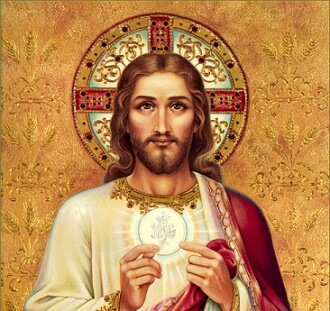
Many of us know what “emotional eating” is all about. We are feeling lonely, so we eat a sugary donut. We are feeling sad, so we eat a sugary donut. We are feeling hurt, so we eat a sugary donut. Then, for a few minutes, we feel some relief. The donut solved our emotional need—at least for a minute or two. Then, guess what, the emotion returns even more intensely than before. So we have the option of grabbing another donut or seeking a better way to “feed” our inner need.
Donuts, as wonderful as they are, are not “true food” for our emotions. If we are lonely, sad, or hurt, a “true food” might be getting on the phone and talking with a trusted friend about how we feel. This food may require more effort and humility on our parts, but, in the long run, it works much better than donuts. And, besides, it doesn’t add extra pounds to our bodies.
There are some issues in our lives that donuts and even talking with a friend do not solve. They run deeper than the realm of bodily chemistry and emotional needs. Remember the story of Job. Donuts couldn’t solve his problem, and when he tried to talk things over with friends, it made his pain even worse. Job needed a kind of food that would reach beneath the body and the soul, into the inner part of himself that we call his “spirit.” Only God could provide the spiritual food he needed, and eventually he did.
The Church is taking us into chapter six of St. John’s gospel, where Jesus delivers what is known as the “Bread of Life” discourse. Today he talks with us about “true bread” (John 6:30-35). The people challenged him:
“What sign can you do that we may see and believe in you? Our ancestors ate manna in the desert, as it is written: ‘He gave them bread from heaven to eat.’”
They were saying, “Give us some special food like manna.” Imagine how they would have reacted if Jesus did produce a bowl full of “manna.” They would have rejected it the way little children turn up their noses to the nutritional cereal that mom puts on the table. Jesus reminded them that this “bread from heaven” was not produced by Moses or any other human being. It did not grow from the earth. God provided it by letting it rain down from the sky and settle on the ground like dew. We read in Exodus that this manna was a miracle bread—it satisfied all of their nutritional needs. I think it says that the manna resembled coriander seeds.
God, once again, is going to take care of the needs of his people. This time he is giving them “bread from heaven” that feeds not only the body but also the spirit.
“Amen, amen, I say to you, it was not Moses who gave the bread from heaven; my Father gives you the true bread from heaven. For the bread of God is that which comes down from heaven and gives life to the world.”
Imagine this new bread! Jesus calls it “God’s bread.” It also comes down from heaven, and has the power to give real life to the whole world!
The people were sold. They were ready for the sign they requested and couldn’t wait to see Jesus produce this new kind of bread.
“Sir, give us this bread always.”
Then Jesus said,
“I am the bread of life; whoever comes to me will never hunger, and whoever believes in me will never thirst.”
What a claim! Jesus, himself, is the new manna. And whoever eats of this new manna would never hunger or thirst again. It was like the “living water” that Jesus talked about to the woman at the well. After drinking of it a person would never thirst again.
Jesus, himself, is the “true bread.” Eating of his body and drinking his blood does more than all the donuts in the world, and a room full of compassionate friends can do. It feeds the spirit of a human being—the source of our fundamental hunger.
The crowd had no idea what Jesus was talking about, but we, thanks to our faith, know what he meant. God found a way to make the “new manna” available to all the world through the Holy Eucharist. We literally eat the flesh of Jesus and drink his blood, and this generates new life within our spirits. What the crowd longed to see and eat, we have every day—and it’s free and convenient—maybe a five minute drive from our homes. Have we begun to take the “true bread” for granted? Let’s stir our faith in the real presence of Jesus and go with fervent eagerness to the Eucharist and expect inner miracles to start happening within our spirits.
“I am the bread of life, says the Lord; whoever comes to me will never hunger” (John 6:35).
